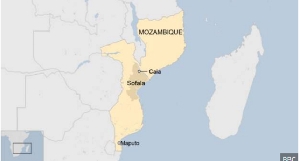Opinions of Monday, 5 May 2014
Columnist: Oti, Douglas
Ghana’s Economic Development Facilitation
– Attracting Foreign Investors
Availability of Capital Investment is a catalyst to Ghana’s economic development. Comparing local and foreign sources, the country’s development is likely to be driven forward faster and further by the latter, considering the current potential generations of both. This also means that the foreign source is the likely determinant of our growth and our ability to skip from where we are now to where we want to be (middle income class). However, the influx of foreign capital investment is influenced; besides market size (population) and dependable electricity power supply; by public health and sanitation of the state as well. This is usually overlooked by the caretakers of the state but not by the external investors. The consequences is that there is an inertial buildup repelling against investment. Ghana is gaining fame as a stable nation in Africa and continually being showcased on CNN international as a safe spot which likely could attract investors. This attraction of this investment would help create jobs, income for both citizens and the government. And with this income, the government could satisfy the fundamental needs of the citizens and the nation at large. Shelters, good schools, and better equipped hospitals and other public utilities can be accessed by all. But it is unclear if studies has or is being undertaken to elucidate how public health and sanitation status of the country affects investment and hence drive the economy forward at all. Note that the poor public health and sanitation conditions could be overwhelming to some new investors and could kill their momentum and initiative to invest in Ghana.
Clearly, there is a high tendency for private investors to avoid investing in a region deemed a high risk. A region riddled with high rate of mortality of the workforce, caused by avoidable diseases and epidemic outbreaks. Diseases such as guinea worms, cholera, malaria, etc. making the regions appear unattractive unless there is a high profit margin, that is easy and quick to make or unless the investment is meant for the healthcare in the first place. And even that would require subsidy from elsewhere because the citizens and the affected nation is not positioned to afford it. On the other hand, a region of healthy, energetic, and smart innovative workforce is more attractive and thus every investor is yarning to put his/her money in there.
This said, the current outbreak of Ebola in the West African region is more likely to deepen the unattractiveness of this region for investment. It is going to increase the region’s unattractiveness and would create a ripple effect. Social, economic, and other issues that could have been tackled and solved within a time frame would either be postponed or not be solved at all. And realigning progress would result in more effort, money, and time to achieve what could have been achieved had the epidemic not occurred. This puts the region into the poverty cycle. A situation that can be likened to driving in central downtown of Accra criss-crossed with potholes, T - junctions and traffic lights and with other cars piled up in front of you. Your arrival to your destination takes forever if you would ever get there. The potholes, the T-junctions, and the traffic lights are in places to regulate (impede) your smooth unstoppable motion to your destination. On the other hand, driving on a highway gets you quickly to your destination. You are even rewarded sometimes. Rewards such as “unlimited speed lanes” on which you can go as fast as you like. What this means is if we clear these fundamental issues, our economic progress would be faster and we could even solve some of our daunting problems with less effort and with uncalled help. It is therefore of a prime importance to be concerned of our environment, sanitation, and the public health.
There is also a dire need for cultural and behavioral changes that we have to undertake. These include eating with bare unwashed hands, eating soupy food with bare hands, in the same bowl, and with other persons. We should also put a brake on our high appetite for bush meats which some could be contaminated. Furthermore, there is the need to enforce the existing sanitation standards for restaurants, chop bars, and street side food vending.
So in our quest to create a conducive environment for investments, public health and sanitation should, in my view, be regarded as important as is the need for incessant and reliable power supply. It is therefore important that public health research, monitoring, and evaluation be revamped. And also a need for national and regional base line program, for rapid situation analysis, and quick intervention systems. These programs also need to be coordinated with neighboring countries and in broader sense, collaborated with world development organizations like UNDP for a purpose of quick intervention support. But these actions in the first place, require national policy makers’ involvement for policy evaluation and updates, effective implementation with a positive multidimensional diffusion without the need for very intensive pressure for the propagation. These actions with others would enable us achieve our middle income state that we are yarning for. This was written by Douglas Oti and can be reached at oti_douglas@yahoo.com. Thank You.












